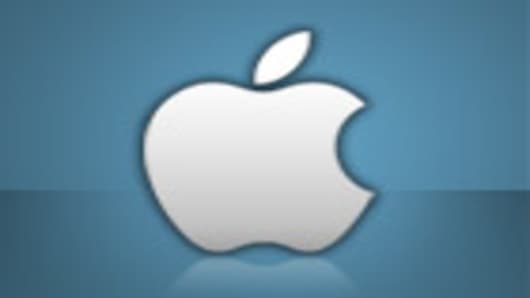It wasn't too long ago that Apple Inc. was out of favor on Wall Street, the stock languishing, the outlook nebulous, the bears drooling at the raise-'em-up-tear-'em-down prospects of one of the most compelling companies in all of technology.
Naysayers, shorts, and PC fanatics (are there any?) couldn't wait to dissect doomsday scenarios ready to take this company down.
And while that was a mere few months ago, it's actually eons ago in Wall Street time. Today, Merrill Lynch raises its target from $186 to $215, Goldman Sachs adds Apple to its conviction list of best stocks with loads of positive things to say about the iPhone, comparing it to Motorola's RAZR and the way that handset dominated the industry and transformed that company -- if only briefly -- into the most influential member of the wireless world.
Heady stuff for an upstart company new to the cell phone world. But for Apple, and consumers, iPhone is lots more than merely a smart phone. As Apple has said from the beginning, iPhone is a platform.
And as some savvy pundits and analysts have suggested, iPhone is Apple's next chapter. Not just another device. But the Third Coming after Mac and the iPod. And that's significant because it positions iPhone as not just a competitor in the world of cell phones; it's also a competitor to laptop computers, desktop computers, mobile gaming devices like Sony's Playstation Portable and Nintendo's DS. Maybe not all at once, and maybe not right away, but eventually.
I think about it this way: since I got my BlackBerry, I no longer use my laptop. I email from it, I write scripts on it, I surf the web, rudimentary as it is and frustrating as it can be on AT&T's slow Edge network, I play games on it, and it gives me just about everything I need when I'm on the go. As a business user, it's fine. The iPhone, as it gains market acceptance, adds new features, goes 3G, and dips into the enterprise, offers enormous opportunity for Apple across a number of different markets. A kind of digital Trojan horse that penetrates the business market and then opens the eyes of IT managers who may be more amenable to buying other Apple products when they otherwise wouldn't want to. Again, think "platform," and not just another device. (Yes, I still use a BlackBerry, mostly because of the keyboard. I can't get myself used to the iPhone keyboard. Maybe the new version will feature some kind of haptics response that makes me more comfortable with it. Oh well.)
I'm not telling you anything you don't already know. All of this is the backdrop to the latest stock upgrades and Apple's improving stature on Wall Street. I'm pointing out all of this because as I have said over and over again, Apple is not a stock to trade. It's a stock in which to invest. And not for a week or month or year. This is a long-term opportunity, but because of its volatility, investors are tempted to try to play it, or time it. I wouldn't bother. Just look at Apple's trading chart for this week alone! Wow!
I've gone back and looked at so many analyst reports from so many firms: one week, worried about Mac sales; another week concerned about overly optimistic iPhone sales; one week worried about iPod saturating the market; another week concerned that component prices may hurt, or help margins. Which speaks to my point precisely. There's always going to be issues, always something, that raises concerns and lowers Apple's share price. Focus on the fundamentals, think long term, understand the trends, and look for opportunities.
I can't see a company better positioned in so many different categories, executing in all of them, than Apple.
Questions? Comments? TechCheck@cnbc.com


